Revision Notes: Growth of Nationalism | History and Civics Class 10 ICSE PDF Download
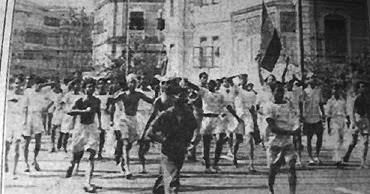
Factors Promoting the Growth of Nationalism in India
The birth of nationalism was one of the most important phenomena which took place in nineteenth century India. Many factors contributed to the rise of nationalism in India. These were
Economic Exploitation
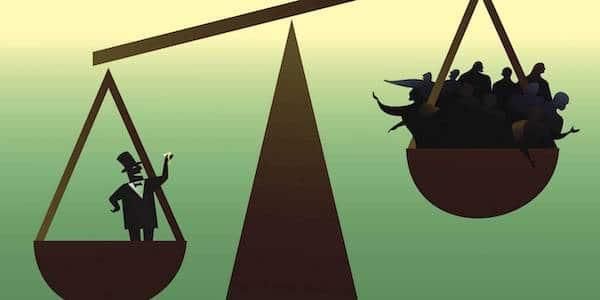
The main aim of British policies in India was to promote their own trade interests. They exploited the Indian economy to such an extent that India became one of the poorest countries within two centuries of British rule. The following sections of Indian society were impacted by British policies:
- Peasants: The government levied high taxes on land. The revenues were generally not reduced even during droughts and floods. This deteriorated the conditions of the Indian peasantry.
- Artisans and Craftsmen: By following the policy of ‘Free Trade’, the British destroyed the Indian textile and handicraft industries. While no import duties were levied on British goods entering India, high duties were imposed on Indian goods entering Britain. This policy ruined the income for artisans and craftsmen.
- Working Class: The establishment of industries gave rise to the working class in India. The working class was exploited by factory owners who were generally Englishmen. Extremely low salaries were paid to factory workers.
- Educated Indians: The educated Indians were not appointed to high posts. High posts in civil and military services were only reserved for the British. Their chances of promotion were also weak. As a result, the educated Indians began to feel alienated by the British.
Repressive Colonial Policies
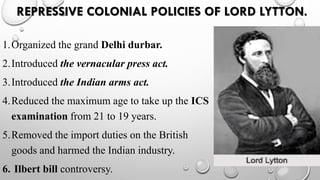
The repressive policies implemented by the British during their rule in India played a significant role in fueling nationalism among the Indian populace. These policies were characterized by a lack of concern for Indian welfare and a focus on maintaining British authority.
1. The Grand Durbar and Famine in Bengal
- In 1877, Lord Lytton organized a grand durbar in Delhi to proclaim Queen Victoria as the Empress of India.
- At the same time, a severe famine broke out in Bengal.
- While millions of rupees were spent on the durbar, no assistance was provided to the suffering Indians affected by the famine.
2. The Vernacular Press Act (1878)
- Passed by Lord Lytton, this Act empowered the British government to confiscate newspapers that printed anything against the British authorities.
- The Act was later repealed by Lord Ripon.
3. The Arms Act (1878)
- This Act prohibited Indians from possessing weapons without a valid license while allowing Europeans and Anglo-Indians to keep arms without a license.
- This discriminatory practice caused resentment among Indians.
4. Indian Civil Service Examination
- The maximum age limit for appearing in the Indian Civil Service Examination was reduced from 21 years to 19 years.
- This change made it more difficult for Indians to compete in the examination.
5. Removal of Import Duties
- The removal of import duties on British goods adversely affected Indian industries.
6. The Ilbert Bill (1883)
- Proposed by Lord Ripon, the Ilbert Bill aimed to create political equality by granting Indian judges the authority to try European or British citizens in India.
- The Bill faced strong protests from Europeans and was eventually withdrawn.
- Its withdrawal angered Indians and prompted them to consider organizing for their rights.
Socio-Religious Reform Movements
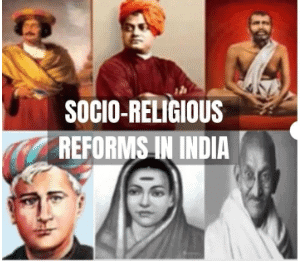
The socio-religious reform movements that emerged in the nineteenth century played a significant role in fostering a sense of nationalism among Indians.
- With the introduction of Western education, educated Indians became aware of the need for societal reforms, prompting the initiation of various socio-religious reform movements across the country.
- During this period, important legislations such as the abolition of sati and the Widow Remarriage Act were passed. Furthermore, efforts were made by enlightened Indians to address issues like caste inequalities, the dowry system, the purdah system, female infanticide, and child marriages.
- Reformers like Raja Ram Mohan Roy and Jyotirao Phule played crucial roles in advocating for social change. Roy, a prominent social and religious reformer, championed female education and was instrumental in making the practice of sati illegal. Phule, on the other hand, challenged the caste system and promoted the education of lower caste girls.
- Many reformers, including Swami Dayanand and Swami Vivekananda, emphasized the superiority of Indian culture and opposed British domination in India. Swami Dayanand Saraswati, in particular, popularized the slogan ‘India for the Indians.’
- These reform movements not only addressed social issues but also stressed the importance of women’s participation in the national movement, urging people of all castes and classes to unite for the country’s independence.
Rediscovery of India's Past
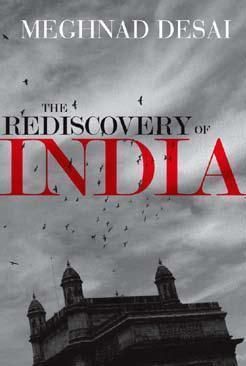
The rediscovery of India's ancient history by various scholars, both Indian and European, played a significant role in fostering a sense of nationalism among Indians. Some key discoveries and contributions include:
- Translation of Sanskrit Texts: Many ancient Indian texts were translated into English and other languages, highlighting India's past technological and cultural advancements.
- Sir William Jones and the Asiatic Society: Sir William Jones founded the Asiatic Society of Bengal to promote Oriental studies. He translated works like the plays of Kalidasa and the Manu Smriti, contributing to the understanding of India's rich heritage.
- Translation of the Bhagavad Gita: Sir Charles Wilkinson was the first European to translate the Bhagavad Gita into English in 1785, further introducing Indian philosophical and spiritual thought to a wider audience.
- Deciphering Ashoka's Edicts: James Prince deciphered the edicts of Emperor Ashoka, and along with Alexander Cunningham, he highlighted the achievements of the Maurya, Gupta, Chalukya, and Pallava empires. This awareness of India's political history instilled pride and nationalism among Indians.
- Excavations at Harappa and Mohenjodaro: Under the Indian Archaeological Survey, excavations at Harappa and Mohenjodaro revealed the existence of an ancient civilization in India dating back to around 2300 BC.
The restoration of India's glorious past through these discoveries boosted self-confidence and self-respect among Indians, countering Western narratives that questioned India's ability to govern itself.
Impact of Western Education
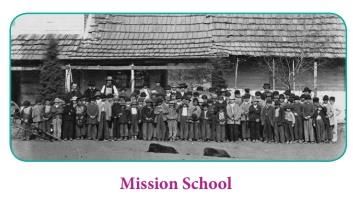
- Western education instilled in Indians the principles of liberty, equality, and justice.
- Educated Indians became aware of self-rule and democracy, leading them to demand independence from British rule to establish a democratic system in India.
Contribution of the Press
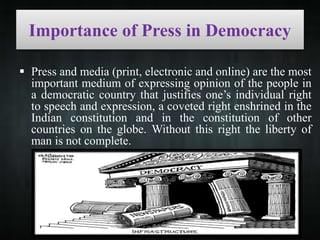
- In the late nineteenth century, numerous newspapers and magazines were founded, including Amrit Bazar Patrika, The Bengali, The Tribune, The Pioneer, and The Hindu.
- The press played a crucial role in disseminating ideas of liberty, freedom, equality, home rule, and independence among the populace.
- Newspapers criticized British policies and exposed the realities of British rule in India, encouraging various communities and groups to organize political movements.
Development of Transport and Communication System

- The advancement of transport, particularly the railways, played a crucial role in fostering nationalism in India. The railways made it easier for people to travel across different parts of the country, promoting a sense of unity among them.
- Similarly, the development of the post and telegraph system also contributed to unifying people from various regions within the country.
Growth of Political Associations
During the nineteenth century, numerous political associations and organizations emerged. The Landholders' Society, established in Kolkata in 1838, was the first of these associations. Other notable associations, such as the Bengal British Indian Society, British India Association, and East India Association, also originated in India.
The East India Association : Founded in London in 1866 by Dadabhai Naoroji, this association aimed to present Indian grievances to the British Parliament and propose remedial measures.
The Indian Association : Led by Surendranath Banerjee, this association consisted of lawyers, professionals, and educated middle-class Indians. Its objectives included:
- Integrating Indian people based on common political interests.
- Promoting friendship and harmony between Hindus and Muslims.
- Ensuring mass participation in movements.
The association protested against the Vernacular Press Act and the reduction of the age limit for the Indian Civil Service Examinations. It also advocated for Indian workers on British-owned plantations.
The Indian National Conference : Established in 1883 in Kolkata, this conference, convened by Surendranath Banerjee, served as a precursor to the Indian National Congress, which was formed two years later.
Formation of the Indian National Congress
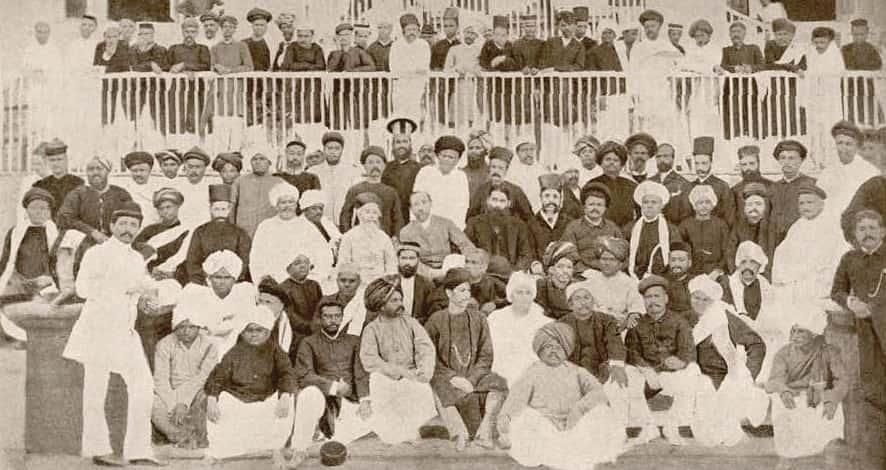
Leaders like Surendranath Banerjee, Dadabhai Naoroji, Pheroz Shah Mehta, and Justice Ranade aimed to create an all-India organization. At the same time, A. O. Hume, a retired British civil servant, sought to establish a forum to highlight the government's shortcomings and prevent a potential uprising like the 1857 revolt.
A. O. Hume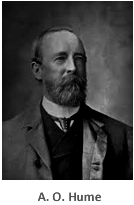 In 1885, A. O. Hume, with the support of Indian leaders, founded the Indian National Congress (INC). The first meeting was initially planned for Pune but was moved to Mumbai due to a plague outbreak.
In 1885, A. O. Hume, with the support of Indian leaders, founded the Indian National Congress (INC). The first meeting was initially planned for Pune but was moved to Mumbai due to a plague outbreak.
Lord Dufferin supported the INC's formation to ensure the government was aware of the people's aspirations.
The inaugural session of the INC took place in December 1885, chaired by W. C. Bonnerjee. Early demands included:
- Promoting national unity across caste, class, and religious lines
- Increasing Indian representation in legislative bodies
- Establishing legislative councils in provinces lacking them
- Appointing Indians to higher positions in government offices
- Conducting Civil Service Examinations in India instead of only in London
The first session was attended by 72 delegates, including prominent figures like Dadabhai Naoroji and Pherozeshah Mehta. The second session was held in Kolkata.
W. C. Bonnerjee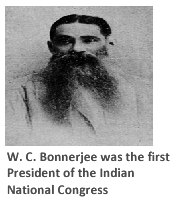
- Split in Congress: An important development occurred in the 1907 Congress session under Rashbehari Ghosh, where the Congress split into moderates and extremists.
- Unity: These factions reunited at the Lucknow session in 1916.
|
28 videos|103 docs|27 tests
|
FAQs on Revision Notes: Growth of Nationalism - History and Civics Class 10 ICSE
| 1. What were the main factors that contributed to the growth of nationalism in India during the late 19th and early 20th centuries? |  |
| 2. How did political associations play a role in the growth of nationalism in India? |  |
| 3. What were the socio-religious reform movements, and how did they influence Indian nationalism? |  |
| 4. Can you explain the role of economic factors in the growth of nationalism in India? |  |
| 5. How did the First World War impact the Indian nationalist movement? |  |





















